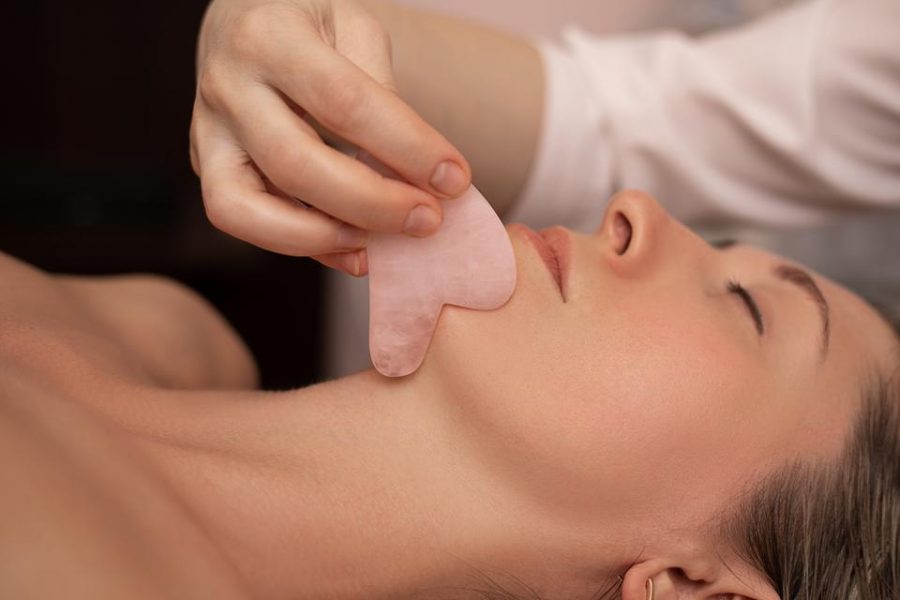Let’s follow trends derived from cultures ethically.
The ancient Chinese practice of gua sha has been popularized as a way of slimming or shaping the face. (Photo courtesy of Forbes)
May 17, 2021
Recently, I’ve been fascinated by the marketing capabilities of social media––I’ve seen many thriving beauty trends in my extensive time of scrolling through my phone. A current trend is rice water for hair––the secret to the famous long black locks of the Yao women. As I scrolled occasionally through videos talking about the benefits and history of rice water for hair, I stumbled upon an advertisement. A camera pans over Yao women rinsing their hair in the water while a voice speaks about the benefits of rice water and the company’s product. Imagine my surprise when the video cuts from the ethnic practices to the face of the voice––a white woman.

With the ever-increasing number of users of the Internet and the subsequent growth of global interactions, different practices from around the world have been discovered and publicized. This popularization has brought appreciation to many cultures––K-beauty, for one, becoming a major force in South Korea’s rising cultural economy with its popularity overseas. But this “appreciation” is not always beneficial.
As an Asian-American, I grew up thinking with the mindset that I was not the “norm.” I had smaller eyes than the “norm,” stinkier food than the “norm,” weirder pronunciation than the “norm.” When I saw aspects of my culture being enjoyed by others––food, pop culture, products––I felt happy. But I realized this did not mean they appreciated the Korean culture. When the fox-eye trend––and the accompanying pose which exaggerated the look––came out, I was hurt: Asian features were not beautiful on Asians––they were beautiful on others. Asian cultures, and cultures in general, are not something to casually adopt as a “trend;” it’s a culture that lives through the lives of Asians.
So when I see cultural practices such as gua sha and rice water trending, I feel happy with the appreciation––but have to wonder how people are supporting the practices. When I see white-owned companies selling these products, I feel sad that a culture has been reduced to a money-making method. Ethnic practices are not for companies that do not support the group to profit off of. We’re people. I hope that this will make you think before purchasing products from another culture from companies that only stand to gain a profit. Support ethnic businesses––it’s the ethical thing to do.














Amie • May 17, 2021 at 8:57 am
You are way above normal in my view : )